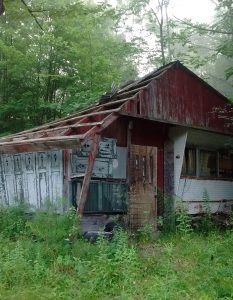This Week’s Bit of String: The students are revolting
I used to support a class of Year 8s who rebelled Hunger Games-style during lessons. A teacher might be talking them through French prepositions or long division, when one after the other, the students would slowly, dramatically raise their hands and whistle the three notes of the mockingjay’s song, until the group was giggling and thoroughly disrupted.
As revolutionary causes go, I wasn’t impressed with theirs. The education they objected to was nowhere near as oppressive as the government from Susan Collins’ fictional Capital, nor as ruthless as many real-life governments around the world and throughout history.
You’ve probably noticed the ever surging interest in dystopian literature, evidenced this week by increased sales of George Orwell’s classic, 1984. I find books like this fascinating, but I also wonder whether this attraction to dystopian fiction is constructive at a time like this. Are we just sensationalising our peril?
The Appeal of Dystopian Fiction
Leaving aside the amazing narrative talents of George Orwell, Margaret Atwood, Lois Lowry, Patrick Ness, Cormac McCarthy, and other authors of great dystopian tales, what do we get from these stories?

The Huffington Post published an essay on the sub-genre’s merits. These stories warn us about the insidious ways governments and/ or technology could usurp our rights. Certainly that must have been Orwell’s intent. With Winston’s experiences at the hands of the unfeeling, super-controlling Big Brother and the Thought Police, Orwell warned not only against fascists like Hitler’s and Franco (Orwell fought in the Spanish insurgency), but also against hyper-ideological dictators like Stalin. After all, according to this BBC New Magazine article, Orwell saw his comrades in Spain killed by rival pro-Communist groups as well as by Franco’s soldiers.
Dystopian fiction arms us. It shows us scenarios in which protagonists’ survival skills are tested to the maximum, forcing us to ask, albeit with stakes much lower than those the characters face, whether we ourselves would be up to the same job.
Current Relevance
To me, it seems a bit late to be brushing up on totalitarian governments with the help of 1984. Shouldn’t people have done that before voting? And—SPOILER ALERT—it doesn’t carry a message of hope, so it’s possibly not an ideal choice to galvanise a resistance movement.
I also worry that dystopian fiction skews our perspective. Our world hasn’t gone completely mad…yet. Places like Syria and the refugee camps, and the many areas worldwide that have been corrupt and impoverished for centuries—those are dystopias.
Those aren’t reasons to stop reading the genre, though (especially since there are so many gripping stories on offer; I love the sound of John Joseph Adams’ dystopian anthology Brave New Worlds, as described at the end of this Kirkus Reviews essay). It just means we need to read it for the right reasons. We should read with vigilance and appreciation, and with enough spirit to go implement the messages given.

With 1984 in particular, I think a striking lesson is this: the regime in that book wants to be loved. It wants to control every thought. And as anyone who’s ever been a teenager will attest, the need to be loved can drive one to dangerous lengths. The current leader of the free world, with his obsession over crowd (and hand) size and his compulsive tweets, shows some of those traits. How do we combat that uncontrollable insatiability?
Writing Dystopia
Even while realising that hell hasn’t fully broken loose yet, some of us find ourselves writing in the dystopian sub-genre more. I’ve written three dystopian short stories in my life, including The Apocalypse Alphabet, and they were all products of the last six months.
I checked with other writers on Twitter to see how they feel about dystopian literature. Rita Gould shares my concern that immersion in it may ‘feed the fear.’ Megan Manzano extols its ability to kindle emotion. ‘They make us sad, hopeful. They anger us. These books show us what we can do. If 17yr olds can create change, why can’t we?’ M.K. Anders notes, ‘Seeing it portrayed is validating, even if the good guy loses.’
All very good points. When the world seems dark, we can’t deny our artistic urge to create something, hyperbolic or not, out of it. This may involve feeling more scared for a time, while we confront worst-case-scenarios burning in our imaginations. But then we locate what makes the characters keep going, like Hannah’s love for her son Jack in The Apocalypse Alphabet, and that helps in real life.
“‘Close your eyes and imagine fireworks,’ Hannah whispers, and Jack obeys, his fingers woven together in front of his shins, his eyelids almost translucent, spidered with delicate veins.”
I emerge from writing and reading these with fresh determination. We’re not alone. People have survived worse. We have a lot worth fighting for. Right, people?